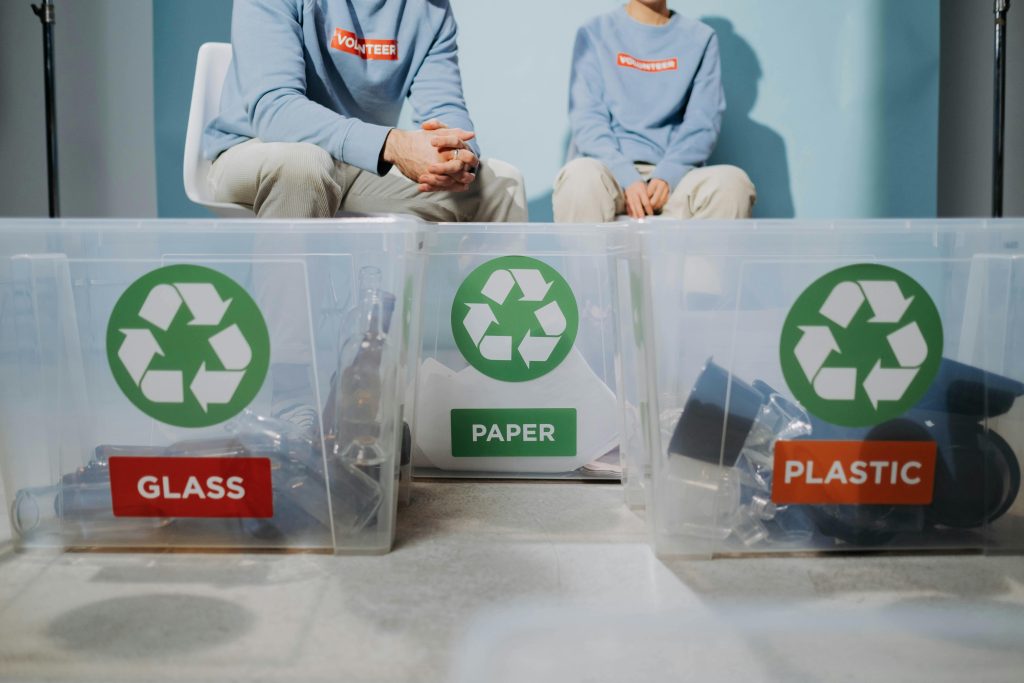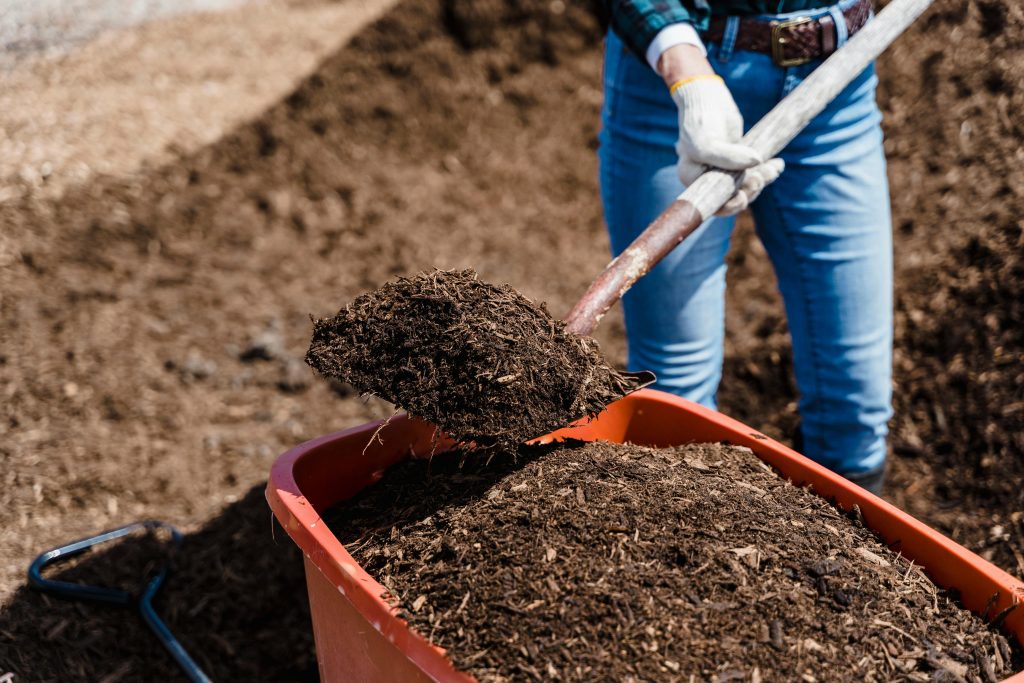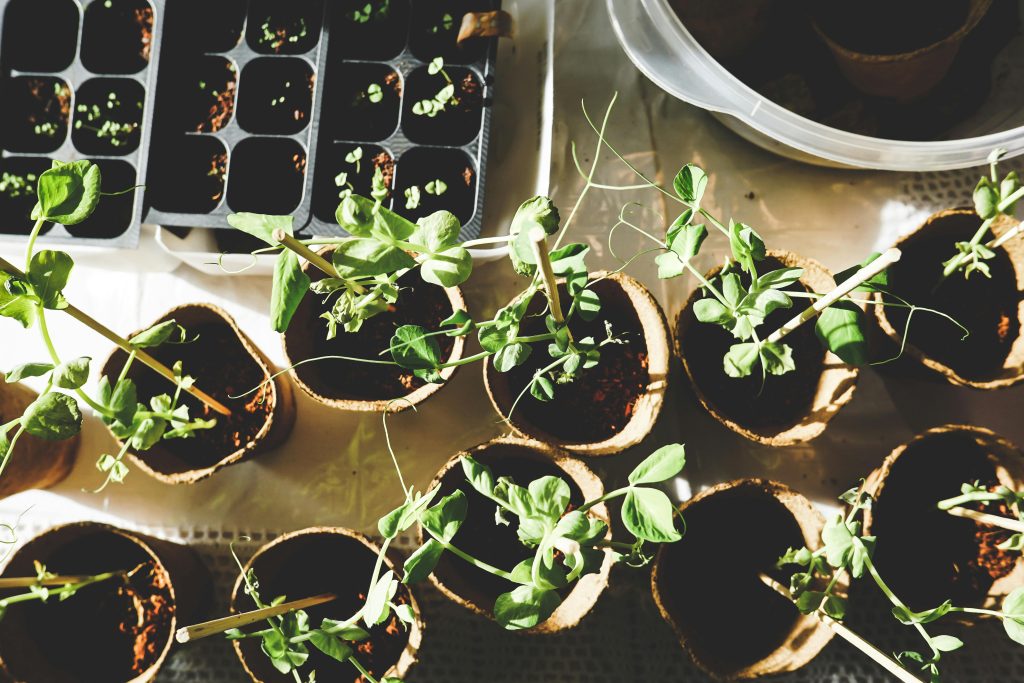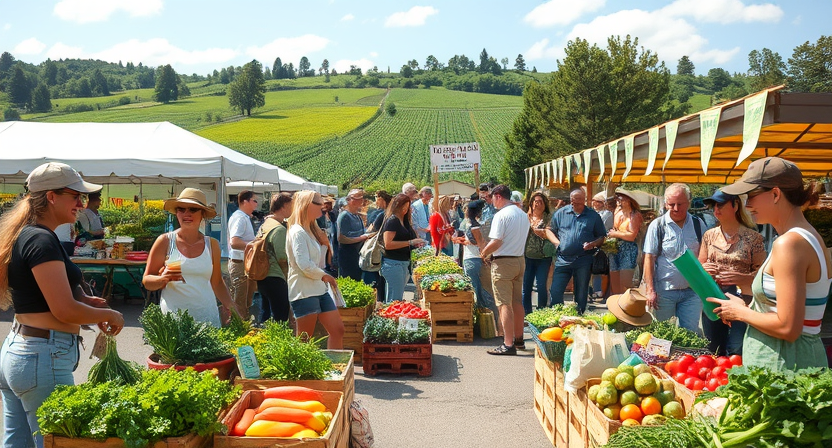Reduce, Reuse, Recycle: Ways to Minimize Waste
Reducing, reusing, and recycling are fundamental strategies for minimizing waste and promoting a more sustainable lifestyle. By reducing the amount of single-use items we consume, such as plastic bags and bottles, we can significantly decrease the waste that ends up in landfills or our oceans. Simple actions like carrying a reusable water bottle or opting for products with minimal packaging can make a positive impact on the environment.
Additionally, reusing items whenever possible can help us cut down on unnecessary waste. Instead of throwing away old clothes or furniture, consider donating them to charity organizations or repurposing them for other uses. Embracing a culture of reusability not only saves resources but also encourages creativity and innovation in finding new ways to extend the life of everyday items.

Conserve Energy: Tips for Lowering Your Electricity Usage
Turning off lights and appliances when not in use is a simple yet effective way to reduce electricity consumption. By being mindful of how many lights are on in your home and unplugging devices when they’re fully charged or not in use, you can lower your energy usage significantly. Additionally, utilizing natural light during the day and investing in energy-efficient light bulbs can also contribute to long-term energy savings.
Another tip for conserving energy at home is to adjust your thermostat settings. During the colder months, lowering your thermostat by just a few degrees can lead to noticeable energy savings. Similarly, in the warmer months, raising the temperature on your air conditioning unit can help reduce electricity usage. Utilizing programmable thermostats to automatically adjust settings based on your schedule can also help optimize energy usage throughout the day.
Plant Trees: How Greenery Can Help the Environment
The simple act of planting trees can have a significant impact on the environment. Trees play a crucial role in purifying the air by absorbing carbon dioxide and releasing oxygen through the process of photosynthesis. In urban areas, trees can help reduce air pollution and provide shade, which can lower temperatures and decrease the need for energy-intensive air conditioning during hot months. Additionally, trees help prevent soil erosion, provide habitat for wildlife, and contribute to the overall beauty of our surroundings.
Furthermore, trees act as natural carbon sinks, absorbing and storing carbon dioxide from the atmosphere. This helps mitigate the effects of climate change by reducing the concentration of greenhouse gases in the air. By planting more trees and preserving existing forests, we can help combat global warming and build a healthier, more sustainable world for future generations. Planting trees is a simple yet powerful way for individuals to make a positive impact on the environment and contribute to a greener, more vibrant planet.

Limit Water Usage: Strategies for Conserving Water
Water is a precious resource that we must all strive to conserve. One simple yet effective strategy is to fix any leaks in faucets, toilets, or pipes promptly. Even a small leak can waste a significant amount of water over time. Another strategy is to opt for water-efficient fixtures in your home, such as low-flow showerheads and toilets. These upgrades can help reduce water consumption without sacrificing performance.

Compost at Home: Turning Food Scraps into Nutrient-Rich Soil
Composting at home is a simple yet effective way to reduce food waste and create nutrient-rich soil for your garden. By collecting food scraps like fruit peels, vegetable trimmings, and coffee grounds, you can create a compost pile that will naturally decompose over time. This process not only helps divert organic waste from landfills but also produces a valuable resource that can enrich the soil in your backyard.
The resulting compost is filled with essential nutrients that plants need to thrive, such as nitrogen, phosphorus, and potassium. By incorporating this homemade compost into your garden beds or potted plants, you can improve soil structure, retain moisture, and promote healthy plant growth. Composting at home is a sustainable practice that not only benefits your garden but also contributes to reducing greenhouse gas emissions associated with food waste decomposition in landfills.

Choose Sustainable Products: Making Eco-Friendly Purchases
Making eco-friendly purchases is an excellent way to reduce your environmental impact and support sustainable practices. When selecting products, consider choosing items that are made from recycled materials or are easily recyclable after use. By opting for goods that have minimal packaging or packaging made from recycled materials, you can help reduce waste and promote a circular economy.
Additionally, look for products that are energy-efficient and have a minimal carbon footprint. This can include items that are certified organic, locally sourced, or produced using renewable energy sources. By prioritizing sustainability in your purchasing decisions, you can contribute to a healthier planet and encourage companies to adopt more eco-friendly practices.
Use Public Transportation: Decreasing Your Carbon Footprint
Public transportation is a sustainable option for reducing individual carbon footprints. By opting for buses, trains, or subways instead of driving alone in a car, you can significantly decrease your greenhouse gas emissions. Public transportation systems are designed to transport more people using fewer vehicles, ultimately leading to less air pollution and a lighter environmental impact.
Not only does using public transportation help combat climate change, but it also reduces traffic congestion and the need for additional road infrastructure. By choosing to ride buses or trains, you contribute to a more efficient use of resources and a more sustainable urban environment. Embracing public transportation as a daily commuting choice can lead to cleaner air, less noise pollution, and a healthier planet for future generations.

Support Local Farmers: Benefits of Eating Local Produce
When you choose to support local farmers by purchasing their produce, you are not only getting fresh and flavorful food, but you are also contributing to the sustainability of your community. By buying locally grown fruits and vegetables, you reduce the carbon footprint associated with long-distance transportation and support the local economy. Additionally, eating local produce often means that the food has been harvested at its peak ripeness, maximizing its nutritional value and taste.
Furthermore, by fostering relationships with local farmers, you gain a better understanding of where your food comes from and how it is produced. This transparency can help you make informed choices about the type of farming practices you want to support, such as organic or regenerative agriculture. Overall, embracing local produce not only benefits your health and taste buds but also helps build a more resilient and sustainable food system for the future.

Reduce Meat Consumption: How Eating Less Meat Helps the Planet
Eating less meat can have a positive impact on the planet. Livestock farming is a significant contributor to greenhouse gas emissions, deforestation, and water pollution. By reducing meat consumption, individuals can help mitigate these environmental issues and work towards a more sustainable future.
Furthermore, cutting down on meat consumption can also lead to improved personal health. Studies have shown that a diet high in plant-based foods can lower the risk of certain diseases such as heart disease, diabetes, and certain types of cancer. By incorporating more plant-based meals into your diet, you not only benefit the environment but also your own well-being.

Switch to LED Bulbs: Energy-Efficient Lighting Options
Making the switch to LED bulbs can have a significant impact on reducing energy consumption in your home. LED bulbs are known for their energy efficiency, using up to 75% less energy than traditional incandescent bulbs. This not only helps lower your electricity bill but also reduces your carbon footprint by decreasing the amount of electricity needed to light your space.
In addition to their energy efficiency, LED bulbs also have a longer lifespan compared to incandescent bulbs, lasting up to 25 times longer. This means fewer bulbs end up in landfills, reducing waste and the environmental impact of constantly replacing burnt-out bulbs. LED bulbs also emit less heat, making them safer to use and further contributing to energy conservation. By making the simple switch to LED bulbs throughout your home, you can make a positive difference for the environment while enjoying cost savings in the long run.

Go Paperless: Minimizing Paper Usage in Your Daily Life
In today’s digital age, going paperless is becoming increasingly popular as individuals seek to reduce their environmental impact. By opting for electronic statements, bills, and documents, you can significantly minimize the amount of paper waste generated in your daily life. Embracing paperless options not only helps save trees but also reduces the energy and resources needed for paper production and disposal.
Additionally, going paperless can streamline your organizational processes and declutter your living or workspace. With digital files and cloud storage options readily available, you can easily access and manage your documents without the need for physical paper storage. Take small steps towards going paperless, such as opting for digital notes, using electronic calendars, and sending emails instead of printed correspondence. By making conscious choices to minimize paper usage in your daily life, you can contribute to a greener and more sustainable future.

Invest in Reusable Products: Ditching Single-Use Items
Investing in reusable products is a simple yet impactful way to reduce waste and lessen our environmental footprint. By swapping out single-use items like plastic water bottles, utensils, and shopping bags for reusable alternatives, we can significantly cut down on the amount of trash we generate. Reusable products not only help in minimizing the resources used to create disposable items but also play a role in curbing pollution and protecting wildlife.
Making the switch to reusable products may require a small initial investment, but the long-term benefits far outweigh the costs. From stainless steel straws to cloth grocery bags, there is a wide range of reusable options available for everyday items. By incorporating these eco-friendly alternatives into our daily routines, we can contribute to a more sustainable future for the planet.

Start a Garden: Growing Your Own Food for Sustainability
Growing your own food at home is a rewarding way to contribute to sustainability efforts. By cultivating a garden, you can reduce your carbon footprint by decreasing the need for transportation of produce from farm to store. Additionally, growing your own fruits and vegetables allows you to have better control over the use of pesticides and fertilizers, promoting healthier and more eco-friendly practices.
Not only does starting a garden benefit the environment, but it also provides a sense of connection to the food you consume. Harvesting your own crops can lead to a greater appreciation for the effort and resources required to produce food. Furthermore, gardening can be a therapeutic and fulfilling hobby that brings a sense of tranquility and pride in nurturing plant life.

Conserve Water: Small Changes to Save Water at Home
Conserving water at home can be achieved through simple adjustments in our daily routines. One effective way to reduce water waste is by fixing any leaks in faucets, toilets, or pipes promptly. Even small leaks can add up to significant water loss over time, so staying vigilant and addressing them promptly is crucial.
Additionally, being mindful of our water usage while performing daily tasks can make a big impact. Turning off the tap while brushing teeth, washing dishes in a basin instead of under running water, and taking shorter showers are all small changes that can lead to considerable water savings. By incorporating these habits into our daily routine, we can play a part in conserving this precious resource for future generations.

Volunteer for Environmental Causes: Getting Involved in Your Community
Volunteering for environmental causes can have a significant impact on your community and the planet as a whole. By dedicating your time and energy to initiatives that promote sustainability and conservation, you can play a vital role in protecting the environment for future generations. Whether it’s participating in beach clean-ups, tree planting projects, or advocacy campaigns, every small effort can contribute to a greater collective impact.
Getting involved in environmental volunteering not only allows you to make a positive difference but also provides an opportunity to connect with like-minded individuals who share your passion for protecting the Earth. Working together towards a common goal can foster a sense of camaraderie and fulfillment, knowing that you are part of a larger movement striving to create a more sustainable world. Additionally, volunteering can be a learning experience, offering insights into environmental issues and solutions that can inspire you to make even more eco-friendly choices in your daily life.
• Volunteering for environmental causes can have a significant impact on your community and the planet as a whole.
• Initiatives that promote sustainability and conservation play a vital role in protecting the environment for future generations.
• Participating in beach clean-ups, tree planting projects, or advocacy campaigns can contribute to a greater collective impact.
• Environmental volunteering allows you to connect with like-minded individuals who share your passion for protecting the Earth.
• Working together towards a common goal fosters camaraderie and fulfillment within the volunteer community.
• Volunteering offers insights into environmental issues and solutions, inspiring eco-friendly choices in daily life.

Educate Others: Spreading Awareness About Environmental Issues
Raising awareness about environmental issues is crucial in fostering a more sustainable future. By educating others about the importance of preserving our planet, we can inspire action and drive positive change. Individuals possess the power to make a significant impact through their daily choices and behaviors that contribute to the well-being of the environment. Through spreading knowledge and creating dialogue, we can empower others to be mindful of their environmental footprint and take steps towards a greener lifestyle.
Educating others about environmental issues goes beyond just sharing knowledge; it involves sparking a sense of responsibility and accountability towards our planet. By engaging in conversations and sharing information about the current environmental challenges we face, we can encourage people to reflect on their habits and consider more eco-friendly alternatives. Through collective effort and a shared understanding of the importance of environmental conservation, we can work towards creating a more sustainable world for present and future generations.
Reduce Plastic Waste: Ways to Cut Down on Single-Use Plastics
Plastic waste has become a major environmental concern in recent years due to its detrimental effects on ecosystems and wildlife. Single-use plastics, such as straws, bags, and water bottles, contribute significantly to this issue. By making simple changes in our daily lives, we can reduce our reliance on these disposable plastic items and minimize our carbon footprint.
One effective way to cut down on single-use plastics is to invest in reusable alternatives. Switching to a reusable water bottle or coffee cup can significantly reduce the amount of plastic waste generated on a daily basis. Additionally, opting for reusable shopping bags instead of plastic ones can help in the effort to reduce plastic pollution in our oceans and landfills. Making these small changes can collectively have a positive impact on the environment and work towards a more sustainable future.

Choose Eco-Friendly Transportation: Walking, Biking, or Carpooling
Walking, biking, or carpooling are excellent ways to reduce your carbon footprint and contribute to a cleaner environment. By opting for these eco-friendly transportation methods, you can decrease air pollution and traffic congestion while promoting a more sustainable way of commuting. Walking not only benefits the environment but also enhances your health by incorporating physical activity into your daily routine.
Choosing to bike instead of driving not only helps the planet but also saves you money on fuel and vehicle maintenance costs. Cycling is a great way to stay active, reduce greenhouse gas emissions, and enjoy the outdoors. Additionally, carpooling with coworkers, friends, or family members decreases the number of vehicles on the road, leading to fewer emissions and less traffic, making your daily commute more environmentally friendly.

Support Green Businesses: Choosing Companies with Sustainable Practices
When it comes to making environmentally-conscious choices, supporting green businesses with sustainable practices is essential. By opting for companies that prioritize eco-friendly initiatives, consumers can contribute to a healthier planet. These businesses often focus on reducing their carbon footprint, using renewable resources, and minimizing waste in their operations.
Choosing to support green businesses can have a significant impact on the environment. By showing demand for sustainable products and services, consumers can encourage more companies to adopt environmentally-friendly practices. Additionally, investing in these businesses helps create a market for green innovations and drives the shift towards a more sustainable economy.
Advocate for Policy Change: Using Your Voice to Make a Difference
Advocating for policy change is a powerful way to influence environmental decisions at a broader level. By voicing your concerns and opinions to policymakers and government officials, you can help shape regulations and laws that support sustainable practices and protect the planet. Whether it’s attending town hall meetings, writing letters to representatives, or participating in peaceful protests, individuals have the ability to spark change and drive forward environmental initiatives.
Policy change plays a crucial role in creating a more sustainable future for our planet. By engaging in advocacy efforts and actively participating in the political process, individuals can hold leaders accountable and push for legislation that prioritizes environmental protection and conservation. Whether it’s supporting initiatives to reduce carbon emissions, promote renewable energy sources, or preserve natural habitats, each voice advocating for policy change contributes to a collective effort to address critical environmental issues and pave the way for a greener, more sustainable world.




